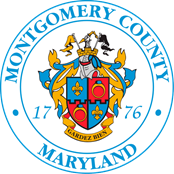Montgomery County, Maryland Información en español

Press Releases - County Council
Legislation expanding composting and creating a greener local economy passes Council unanimously
For Immediate Release: Tuesday, February 9, 2021
ROCKVILLE, Md., Feb. 9, 2021 — Today the Montgomery County Council unanimously passed legislation sponsored by Councilmember Evan Glass that will create a greener local economy by increasing the amount of materials farmers can use on their property to produce and manufacture compost and mulch. ZTA 20-04 was co-led by Councilmembers Craig Rice, Nancy Navarro and Andrew Friedson, and co-sponsored by Council President Tom Hucker and Councilmembers Hans Riemer, Gabe Albornoz, Will Jawando and Sidney Katz.
Montgomery County currently produces 147,000 tons of food waste per year. This waste is the largest contributing factor to the county’s waste stream. Composting these wastes creates a product that can be used to help improve soils, grow the next generation of crops, and improve water quality. ZTA 20-04 will increase the amount of off-site material that farmers can use in the manufacturing of compost and mulch from 20 percent to 50 percent.
“While the county currently lacks the infrastructure to compost food waste at a commercial scale, partnering with local farmers and local green entrepreneurs is a step toward fully harnessing the power of our land so that the county can reduce its waste and increase its climate goals,” said Councilmember Evan Glass. “By partnering with local environmental entrepreneurs, it will lead to a greener environment and economy. This is good for our farmers, our small businesses, our residents and the planet.”
“Increasing composting opportunities for our local farms is a benefit for our agricultural and restaurant industries as well as a positive step in advancing our climate goals. By redirecting food waste, the largest contributing factor in the county’s waste stream, our farmers can use the organic material in their food production,” said Councilmember Craig Rice. “This regenerative practice is key to reducing greenhouse gas emissions and creating a greener environment for future generations.”
“One of the many lessons we have learned during this COVID-19 pandemic is that our food security is a real issue that needs to be addressed, so I am proud to lend my support to this ZTA, because it will go a long way in helping us become more food secure. Now that farmers can produce more mulch and compost on their farms, they can bolster their production and produce healthier food for our residents,” said Councilmember Nancy Navarro. “This proposal maximizes the efficient use of the Agricultural Reserve, and affirms our County’s commitment to eliminating greenhouse gas emissions by 2035. In passing this legislation, we are promoting a sustainable agricultural practice that benefits both our farming economy and the environment.”
"This legislation to expand composting in the Agricultural Reserve will get us closer to our waste diversion goals, boost regenerative agriculture, and help farmers sustain their operations," Councilmember Andrew Friedson said. "It helps local small business owners while promoting greater sustainability and proves once again how critical our Agricultural Reserve is to meeting our environmental goals."
The ZTA was supported by a coalition of farmers, small business entrepreneurs and environmental organizations, including the Montgomery County Farmers Bureau, Compost Crew, Chesapeake Climate Action Network and Bethesda Green.
###
Release ID: 21-047Media Contact: Valeria Carranza 240-777-6198
Categories: Evan Glass